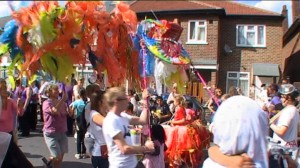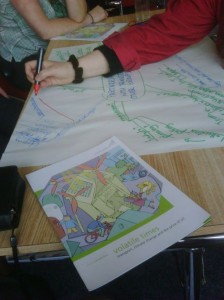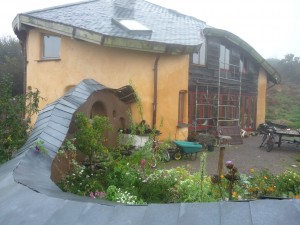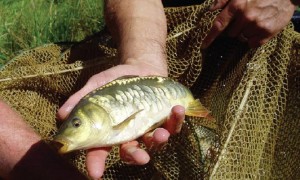Transition Culture has moved
I no longer blog on this site. You can now find me, my general blogs, and the work I am doing researching my forthcoming book on imagination, on my new blog.
Come find me at robhopkins.net
Archive for “Permaculture” category
Showing results 26 - 30 of 105 for the category: Permaculture.
9 Mar 2010
 We’ve got so many wonderfully diverse and inspiring activities to show you this month…ideas for getting people involved and having fun! And they’re here for the sharing…
We’ve got so many wonderfully diverse and inspiring activities to show you this month…ideas for getting people involved and having fun! And they’re here for the sharing…
In the UK, TT Luton is organising a series of Grow Your Own events to relocalise food production and consumption, with discussions and a quiz to encourage people to grow their own fruit and vegetables, while Southend-on-Sea in Transition organised a day’s introduction to Permaculture with more events lined up that you’re invited to get involved with. TT Leek is getting hold of allotments and orchards so they can plant more trees and increase production of native British apple varieties, while TT Nailsea is sharing its gardening skills with other local people to increase self-sufficiency in food production, strengthen local resilience and encourage people to think more about their carbon footprints.
Read more»
2 Feb 2010
 Here is an excellent piece from the Mid-Wales Permaculture Network site, an interview which looks at how Transition initiatives build relationships with other organisations. It is very insightful, and so, with gratitude to Roz Brown and the MWPN, here it is.
Here is an excellent piece from the Mid-Wales Permaculture Network site, an interview which looks at how Transition initiatives build relationships with other organisations. It is very insightful, and so, with gratitude to Roz Brown and the MWPN, here it is.
Roz Brown in conversation with Dave Prescott of Transition Hay-on-Wye
The need for broad community involvement is frequently recognised by TT groups, and is certainly advocated by the fonder of the movement. But many TTs struggle to identify and work with existing community organisations to forward the process of meeting the global challenges of climate change and peak oil. One TT group in Mid Wales proceeded from the outset to foster this collaboration and work with and through other organistions. In this interview, Dave Prescott tells the story of Transition Hay on Wye.
Read more»
2 Nov 2009
 Spent the half term weekend in West Cork in Ireland, revisiting people and places that made up my life between 1996 and 2005. It was like visiting a parallel world, a ‘Sliding Doors’-like glimpse at what could have been, offering reflections on where I am now and where I have come from. I will write in more detail about a few aspects of things I saw there over the next few days, but today’s post is about The Hollies Centre for Practical Sustainability, the eco-hamlet cum sustainability training centre we were involved in setting up from about 1998 onwards. Here, in a nutshell, is the story of where it came from, and what has happened there since we upped and moved to Totnes.
Spent the half term weekend in West Cork in Ireland, revisiting people and places that made up my life between 1996 and 2005. It was like visiting a parallel world, a ‘Sliding Doors’-like glimpse at what could have been, offering reflections on where I am now and where I have come from. I will write in more detail about a few aspects of things I saw there over the next few days, but today’s post is about The Hollies Centre for Practical Sustainability, the eco-hamlet cum sustainability training centre we were involved in setting up from about 1998 onwards. Here, in a nutshell, is the story of where it came from, and what has happened there since we upped and moved to Totnes.
Read more»
2 Oct 2009
 For today’s post, I am handing over to Jimmie Hepburn, who farms organic carp quite near to me here in Devon. During the Middle Ages, carp farming was commonplace, but once we were able to harness the power of ancient sunlight to plunder the sea, it mostly died out. Jimmie’s project, Aquavision, is beginning to make freshwater aquaculture financially viable. He wrote an excellent article on the latest edition of ‘Organic Farming’ magazine (Issue 101: for subscription details call 0117 914 2447). I thought it was rather wonderful, and asked to be able to reproduce it here. You can read the full article here.
For today’s post, I am handing over to Jimmie Hepburn, who farms organic carp quite near to me here in Devon. During the Middle Ages, carp farming was commonplace, but once we were able to harness the power of ancient sunlight to plunder the sea, it mostly died out. Jimmie’s project, Aquavision, is beginning to make freshwater aquaculture financially viable. He wrote an excellent article on the latest edition of ‘Organic Farming’ magazine (Issue 101: for subscription details call 0117 914 2447). I thought it was rather wonderful, and asked to be able to reproduce it here. You can read the full article here.
Read more»
1 Oct 2009
 Food security and the need for GIS models
Food security and the need for GIS models
As expected, the recent paper ‘Can Totnes and district feed itself?’ has started stirring things up. An intriguing response comes from Colin Tudge, a director of LandShare CIC (co-funders of the research) and leader of the Campaign for Real Farming. Colin’s thesis is that the food security issue is a simple matter of feeding the population as far as practical from local sources, recognising that some trade between specialist production areas will always be necessary. He argues that we simply need macronutrients (energy foods and protein), mainly in the shape of grains, and micronutrients – vitamins and minerals – and that by growing lots of wheat and encouraging more urban horticulture we can feed ourselves. I’m brutally over-summarising, of course, but he is keen to keep things simple.
Read more»
 We’ve got so many wonderfully diverse and inspiring activities to show you this month…ideas for getting people involved and having fun! And they’re here for the sharing…
We’ve got so many wonderfully diverse and inspiring activities to show you this month…ideas for getting people involved and having fun! And they’re here for the sharing…




